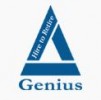Web Designer & Frontend Developer
30+ Web Designer & Frontend Developer Interview Questions and Answers

Asked in Accenture

Q. what is tags ? full form of html ans css ? what is frontend Developer ? how to design the web pages ? why using the css properties ? how many ways to writen the css attributes ? what is text tag ? what is field...
read moreTags are elements used in HTML to define the structure and content of a web page. CSS stands for Cascading Style Sheets. Frontend Developer focuses on the user-facing aspects of a website. CSS properties are used to style and layout web pages.
Tags in HTML are used to define different elements such as headings, paragraphs, images, links, etc.
CSS stands for Cascading Style Sheets and is used to style the layout of web pages.
Frontend Developers focus on the user-facing aspects o...read more

Asked in HCLTech

Q. How do you send data from a child component to a parent component?
Data can be sent from child to parent component in React by using callback functions.
Use callback functions to pass data from child to parent component
Define a function in the parent component and pass it as a prop to the child component
Call the function in the child component with the data as an argument
Web Designer & Frontend Developer Interview Questions and Answers for Freshers
Asked in Websadroit

Q. What is Hooks ? Different types of Hook briefly explain
Hooks are a feature in React that allow you to use state and other React features in functional components.
Hooks were introduced in React 16.8.
useState() is a hook that allows functional components to have state.
useEffect() is a hook that allows functional components to perform side effects.
Other commonly used hooks include useContext(), useRef(), and useMemo().

Asked in Accenture

Q. how may types to create a web page ? what are differnt types of tages and how to work ? what is css attributes ?
There are multiple ways to create a web page, using HTML tags to structure content and CSS attributes to style it.
Types of web pages can include static, dynamic, responsive, and single-page applications.
HTML tags are used to define the structure and content of a web page, such as <div>, <p>, <h1>, <img>, etc.
CSS attributes are used to style the elements on a web page, such as color, font size, margin, padding, etc.

Asked in Capgemini

Q. What is Redux? Explain it with an example.
Redux is a predictable state container for JavaScript apps.
Redux is a state management tool commonly used with React.
It helps in managing the state of an application in a predictable way.
Redux stores the state of the application in a single immutable state tree.
Actions are dispatched to update the state, and reducers specify how the state changes in response to actions.
Example: const initialState = { count: 0 }; const reducer = (state = initialState, action) => { switch (acti...read more

Asked in Genius Consultants

Q. What is one of the best languages you have learned?
One of the best languages I've learned is JavaScript, as it powers dynamic web content and enhances user experience.
JavaScript enables interactive elements on websites, like forms and animations.
It integrates seamlessly with HTML and CSS, allowing for a cohesive development experience.
Frameworks like React and Vue.js enhance JavaScript's capabilities for building complex applications.
JavaScript's asynchronous nature, through promises and async/await, improves performance in w...read more

Asked in Genius Consultants

Q. Which companies do you know that work on cutting-edge technology?
Many companies leverage technology to innovate and enhance their services, from startups to tech giants.
Tech giants like Google and Apple focus on software and hardware innovations.
Startups often use technology to disrupt traditional industries, like Uber in transportation.
Companies in e-commerce, such as Amazon, utilize technology for logistics and customer experience.
Healthcare tech firms, like Teladoc, use technology to provide remote medical consultations.

Asked in SquareBoat

Q. What are the differences between call, apply, and bind?
Call, apply and bind are methods used to set the value of 'this' in a function.
Call and apply are used to invoke a function with a specific 'this' value and arguments passed as an array or list respectively.
Bind is used to create a new function with a specific 'this' value and arguments that can be called later.
Call and apply are similar, but apply is useful when the number of arguments is unknown or variable.
Bind is useful when you want to pass a function as a callback with ...read more
Share interview questions and help millions of jobseekers 🌟


Asked in Capgemini

Q. What is a Pure function?
A pure function is a function that always produces the same output for the same input and has no side effects.
Always returns the same output for the same input
Does not modify any external state or variables
No side effects, such as network requests or console logs
Easier to test and reason about

Asked in Thrive Now

Q. What is a prototype in JavaScript?
Prototype in JavaScript is an object that is associated with every function and object by default.
Prototype allows objects to inherit properties and methods from other objects.
It is used for adding new properties or methods to all instances of an object.
Example: Adding a new method to the Array prototype to capitalize all elements: Array.prototype.capitalize = function() { return this.map(item => item.toUpperCase()); }

Asked in PwC

Q. How do you deploy an Angular application?
Deployment of Angular application involves building the application and hosting it on a server.
Build the Angular application using 'ng build' command
Copy the generated files from the 'dist' folder to the server
Configure the server to serve the Angular application
Use tools like Jenkins or GitLab CI/CD for automated deployment
Asked in Quaisar Medisoft

Q. Define the map, reduce, and filter methods.
Map, reduce, and filter are higher-order functions in JavaScript used to manipulate arrays.
Map method applies a function to each element in an array and returns a new array with the results.
Reduce method applies a function to each element in an array, resulting in a single output value.
Filter method creates a new array with all elements that pass a test implemented by the provided function.
Asked in Blackcurrantapps LLP

Q. What is a meta tag and what is its use?
Meta tag is a snippet of HTML code that describes the content of a web page.
Meta tags provide information about the webpage to search engines and browsers.
They are placed in the head section of the HTML document.
Common meta tags include meta description, meta keywords, and meta viewport.
Example:
Asked in Edgytal Fintech Investment Services

Q. What is html, what is angular
HTML is a markup language used for creating web pages. Angular is a JavaScript framework for building dynamic web applications.
HTML stands for HyperText Markup Language
HTML is used to create the structure of a web page
Angular is a JavaScript framework developed by Google
Angular allows for the creation of dynamic web applications
Angular uses components and directives to build interactive user interfaces

Asked in Genius Consultants

Q. How many projects have you created?
As a web designer and frontend developer, I have created numerous projects, each enhancing my skills and portfolio.
Developed a personal portfolio website showcasing my design and coding skills.
Created an e-commerce site for a local business, integrating payment gateways.
Built a responsive blog platform using HTML, CSS, and JavaScript.
Worked on a web application for a non-profit organization to manage donations.

Asked in Rackspace

Q. Why do we use JavaScript?
JavaScript is used for adding interactivity, dynamic content, and functionality to websites.
Allows for dynamic content updates without reloading the page
Enables interactive elements like forms, sliders, and animations
Can be used for client-side validation and user input handling

Asked in Accenture

Q. What is closure?
Closure is the combination of a function bundled together with references to its surrounding state.
Closure allows a function to access variables from its outer scope even after the outer function has finished executing.
It helps in maintaining state in functional programming.
Example: function outerFunction() { let outerVar = 'I am outer'; return function innerFunction() { console.log(outerVar); }; }

Asked in Thrive Now

Q. What is backend and frontend
Backend is the server-side of a website or application, while frontend is the client-side.
Backend handles the server, database, and application logic.
Frontend deals with the user interface and user experience.
Examples of backend technologies include Node.js, Python, and Ruby on Rails.
Examples of frontend technologies include HTML, CSS, and JavaScript.

Asked in Hyperface

Q. What is semantic HTML?
Semantic HTML is using HTML elements that have meaning and convey the structure of the content.
Semantic HTML helps improve accessibility for users with disabilities.
It also helps with SEO by providing search engines with better understanding of the content.
Examples include using <header>, <nav>, <main>, <article>, <section>, <footer> tags instead of <div> for layout.
Asked in Cloudrevel Innovations

Q. What is your experience with basic HTML, CSS, and JavaScript?
HTML, CSS, and JavaScript are foundational technologies for building web pages and applications, enabling structure, style, and interactivity.
HTML (HyperText Markup Language) structures the content of web pages. Example: <h1>Title</h1> defines a main heading.
CSS (Cascading Style Sheets) styles the appearance of HTML elements. Example: body { background-color: blue; } changes the background color.
JavaScript adds interactivity to web pages. Example: document.getElementById('myB...read more
Asked in Amigo Infotech

Q. Position in css Flex in css
Flex in CSS is a layout model that allows elements to adjust their sizes and positions dynamically.
Flexbox is used to create flexible layouts with a container and its child elements.
Properties like display: flex, flex-direction, justify-content, align-items, and flex-grow are commonly used in flexbox.
Flexbox is great for creating responsive designs and aligning items in a row or column.

Asked in SquareBoat

Q. Explain closures and currying in JavaScript.
Closures and currying are advanced concepts in JavaScript that allow for more efficient and flexible code.
Closures allow inner functions to access variables from outer functions
Currying involves breaking down a function with multiple arguments into a series of functions with single arguments
Both closures and currying can improve code readability and maintainability

Asked in IBM

Q. What is Flexbox?
Flex is a shorthand property in CSS for setting flexible lengths on items in a flex container.
Flex is used in CSS to create flexible layouts.
It allows items to grow or shrink to fill the available space.
Flex properties include flex-grow, flex-shrink, and flex-basis.
Example: 'display: flex;' sets a container as a flex container.
Asked in Cloudrevel Innovations

Q. What tech stacks have you worked with?
I have experience working with various tech stacks including HTML, CSS, JavaScript, React, and Node.js.
HTML
CSS
JavaScript
React
Node.js
Asked in Cloudrevel Innovations

Q. What are the basics of React?
React is a JavaScript library for building user interfaces, focusing on component-based architecture and efficient rendering.
Component-Based: React applications are built using reusable components. For example, a Button component can be reused across the app.
JSX Syntax: React uses JSX, a syntax extension that allows mixing HTML with JavaScript. Example: <h1>Hello, World!</h1>.
Virtual DOM: React maintains a virtual representation of the DOM to optimize rendering and improve pe...read more
Asked in Websadroit

Q. Objects in javascript
Objects in JavaScript are data structures that store key-value pairs.
Objects are created using curly braces {}
Keys are strings, values can be any data type
Access values using dot notation or bracket notation
Objects can contain functions as values
Asked in Quaisar Medisoft

Q. Define OOP and its features.
OOP stands for Object-Oriented Programming. It is a programming paradigm based on the concept of objects, which can contain data and code.
OOP focuses on creating objects that interact with each other to solve problems
Features of OOP include encapsulation, inheritance, and polymorphism
Encapsulation allows objects to hide their internal state and require interaction through methods
Inheritance allows objects to inherit properties and behavior from parent objects
Polymorphism allo...read more

Asked in BlackBuck

Q. Create a component for a counter.
Create a reusable component for a counter in web design and frontend development.
Use HTML for structure
Use CSS for styling
Use JavaScript for functionality
Implement increment and decrement buttons
Display the current count

Asked in AmbitionBox

Q. What are HTML and CSS?
HTML and CSS are the building blocks of web development. HTML is used for structuring content, while CSS is used for styling and layout.
HTML stands for HyperText Markup Language and is used to create the structure of a webpage.
CSS stands for Cascading Style Sheets and is used to style the HTML elements on a webpage.
HTML uses tags to define different elements like headings, paragraphs, images, links, etc.
CSS allows for customization of colors, fonts, spacing, layout, and more ...read more

Asked in Choice Techlab

Q. What is NgModel?
NgModel is a directive in Angular that binds form inputs to model data, enabling two-way data binding.
NgModel facilitates two-way data binding between the view and the model.
It is commonly used in forms to capture user input.
Example: <input [(ngModel)]='username' placeholder='Enter your name'> binds the input value to the 'username' property.
NgModel can also validate user input, providing feedback on form controls.
It works seamlessly with Angular's reactive forms and template...read more
Interview Experiences of Popular Companies





Top Interview Questions for Web Designer & Frontend Developer Related Skills



Reviews
Interviews
Salaries
Users

















